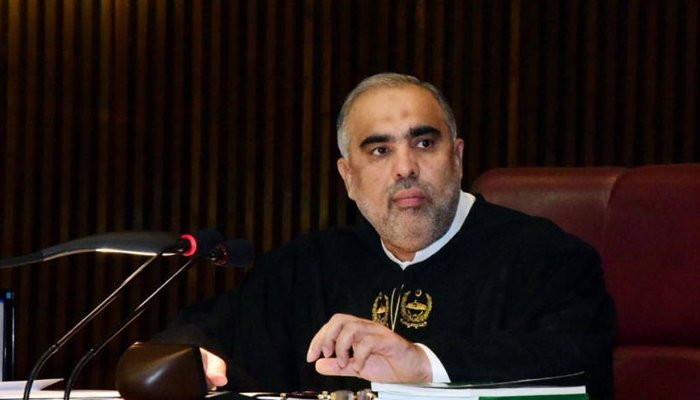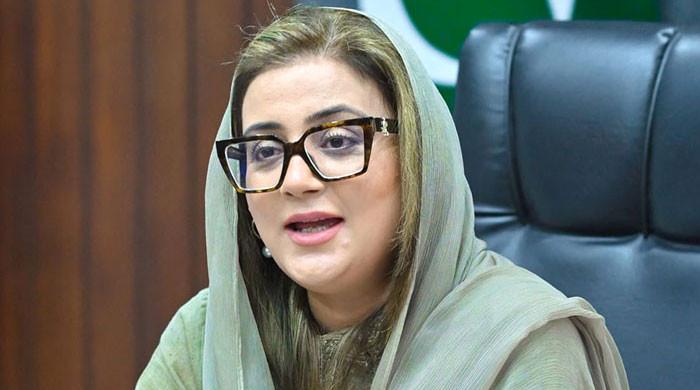NA Speaker Asad Qaiser asks over 100 Muslim parliamentarians to speak about Islamophobia
NA speaker says Islamabad will host conference of Muslim MPs after COVId-19 to develop strategy against Islamophobia
April 28, 2021

- NA speaker tells lawmakers that attempts to disrespect Islam and Prophet Muhammad (PBUH) is an attack on beliefs of Muslims.
- Asad Qaiser hopes that Muslim parliamentarians will step forward and speak out in their respective parliaments against Islamophobia.
- Speaker says through a united front, Muslim lawmakers can promote interfaith “harmony and solidarity”.
National Assembly Speaker Asad Qaiser announced on Wednesday that he has dispatched a letter to over 100 Muslim parliamentarians across the world to urge their parliaments to end the recent surge of Islamophobia seen in the West.
“Attempts to disrespect Islam and Prophet Muhammad (PBUH) under the garb of freedom of expression is an attack on beliefs of Muslims,” tweeted Speaker Qaiser. He warned that attacks of the Muslims’ faith will “not be tolerated”.
“It is hoped that Muslim parliamentarians around the world will step forward and speak out in their respective parliaments against discriminatory practices, such as Islamophobia and religious hatred,” said Qaiser about the letter.
The speaker said that through a united front, Muslim lawmakers can promote interfaith “harmony and solidarity”.
The custodian of the National Assembly also announced that once the coronavirus pandemic ends, the Pakistani government will hold a conference of Muslim parliamentarians in Islamabad to develop a joint strategy against Islamophobia.
Last week, The News had reported that Speaker Qaisar had announced that he would write letters to the speakers/presiding officers of the world parliaments to raise the issue of blasphemy in their parliaments for bringing an end to this practice as it was hurting the religious sentiments of Muslims on the pretext of freedom of expression.
The speaker had indicated his willingness to write the letter in a meeting with Punjab Governor Chaudhry Sarwar and former speaker and Minister for Inter-Provincial Coordination Dr Fehmida Mirza.
The three officials had met to discuss the rising trend of blasphemous remarks and desecration of religious sentiments of Muslims in the Western countries.
Read more: NA Speaker Asad Qaiser's Kabul visit postponed due to security concerns
It was agreed that Muslim parliamentarians from Europe and North America would be approached, and they would be requested to raise the issue of blasphemy in their respective parliaments. They agreed that respecting the religious sentiments of each other would help in coexistence.
Speaker Qaiser had said at the time that Europe was quite sensitive about the Holocaust, whereas, at the same time, the utterance of blasphemous remarks against the Holy Prophet (PBUH), hurting the sentiments of Muslims, was going on unabated.
He had urged the Western powers to set the same standard for the Holocaust as well as blasphemy. He said such disregard to the religious sentiments was not acceptable on the pretext of freedom of speech.











